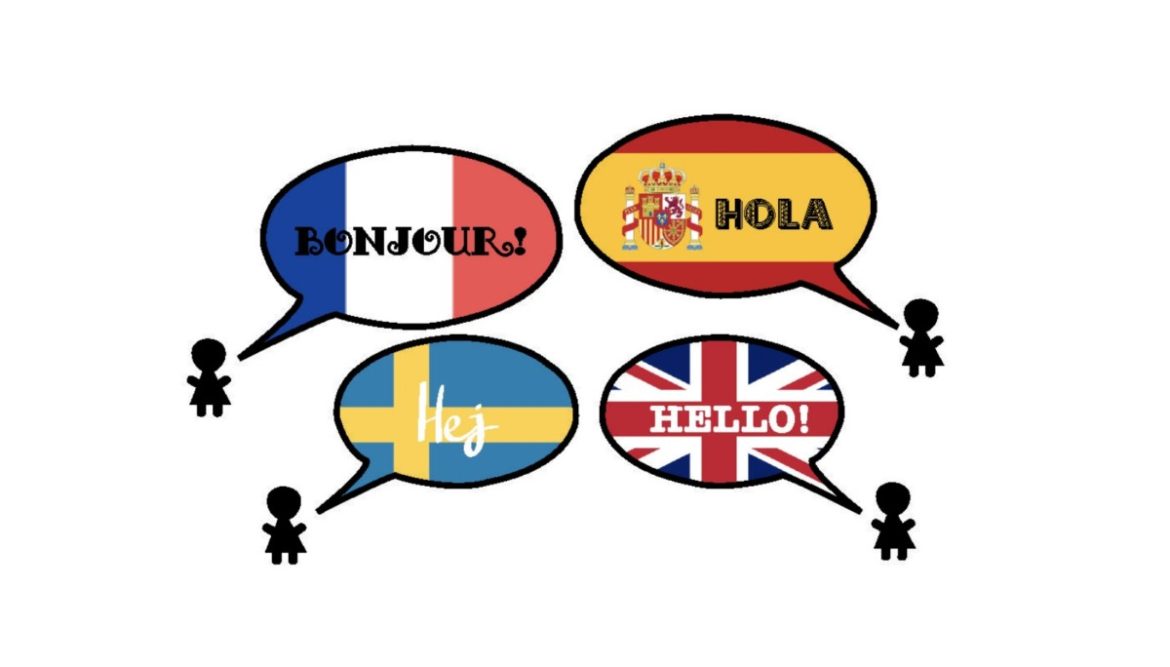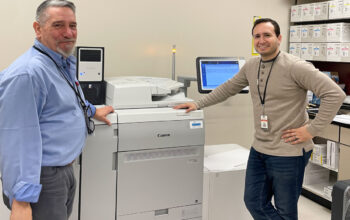Peyton Zaletsky, Features Editor
@peytonzcourant
While the average American can speak only one language fluently, Freshmen Radea Raleva can almost speak four. She speaks Bulgarian and English fluently, and also takes Spanish and French in school. She has a passion for languages and wants to learn as many as she can so that she can talk to all types of people.
“I have friends that speak Spanish and French that also speak Bulgarian, so that motivated me to take both Spanish and French classes,” she said. “I love traveling so I want to be able to live somewhere and go to college abroad so I thought it would be cool to know more languages, plus if you know someone else who speaks the same languages as you, you can communicate with them in their own language which is really cool.”
Multilingual students at the highschool speak a wide variety of languages, ranging from Spanish, to French, and even Bulgarian like Radea. Although being fluent in multiple languages is an impressive talent, it can also present challenges for students, especially during school.
Junior Sebastian Roman, who was born in the Dominican Republic, was exposed to English even outside of America. “It was definitely very difficult to learn English, and I learned the basics of it before I moved to the United States,” he said. “I was forced to learn English due to the strong influence the American culture has in the Latin American continent.”
Students whose first language was not English faced challenges trying to learn English due to its complex grammar and vocabulary. Luckily, for non-native english speakers, the highschool offers the English Second Language (ESL) program, which provides students with private English classes in order to help them through their classes. Senior Sidonie Mountran, who moved from France when she was nine, found this program to be very beneficial. “The ESL program was a really good program and their guidance helped me to be able to communicate with other students and teachers quickly,” she said. “I don’t think I would have been able to learn English as fast as I did without it.”
Through the ESL program, multilingual students like Sidonie have been able to meet to other non-native english speaking students, giving them the ability to bond over a common factor. “I have met other French people who have moved to New Canaan and we have been able to connect through the ESL program,” she said.
Interestingly enough, an obstacle for bilingual students can be foreign language classes. This is true in Sebastian’s case, as he sometimes has trouble in Spanish class. “It is very difficult to differentiate the aspects of the grammar in Spanish because I basically grew up with it.” he said.
According to Sidonie, it is easy for multilingual students to struggle in school if they spend too much time away from speaking English. “When I spend too much time with my family or don’t go to school for a period of time, I come back and have a slight accent,” she said. “So it can be weird for me to switch back to English.”
However, being multilingual also offers many advantages to students. Radea takes both French and Spanish in school and also speaks fluent Bulgarain, she finds her extensive language knowledge very helpful for assessments. “I can figure out answers based on the words or grammar using another language,” she said. “If I have a Spanish test and don’t remember the Spanish word, I use the French word to help me.”
Many students who are multilingual have access to other cultures and ways of life. Radea spends her summers in Bulgaria; she likes that she has the ability to see the ways other people live and to learn more about her Bulgarian culture. “Bulgaria is a different environment than New Canaan, and the people have a very different lifestyle,” she said. “ It is interesting to live here during the school year and there in the summer, and experience different ways of living.”
For many multilingual students, it is very important to keep their original culture alive. “There are many adolescents that struggle with speaking their first language because they think that they don’t really ‘need’ it in school or that it is not important,” said Sebastian. “I want to make sure that I’ll never forget how to speak Spanish, and hopefully it will be more present in the future. It is a part of me and a part of my culture.”




